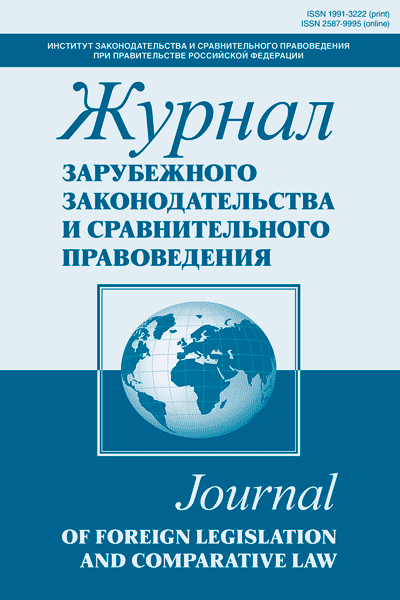Russian Library and Bibliographic Classification 67
The tendency toward unification of EU countries’ national legal orders is a natural and necessary part of integration processes within the European Union. However, due to the diversity and differences of legal systems and cultures in the European states, the question of establishing a complete uniformity of material legal norms, first of all, in the field of private law, seems to be the one of a remote future. In this regard, a milestone development has been the unification of EU countries’ legal norms of private international law concerning non-contractual obligations, i. e. the adoption and entry into force of the EU Regulation (Rome II). One of the main novelties introduced therein is the principle of parties’ autonomy according to which parties to a non-contractual obligation have the right to choose the law to be applied to their relationship. The author analyzes and systemizes the limits of such a choice contained in the EU Regulation (Rome II). Parties to non-contractual obligations through the choice of applicable law can build their relationships in a way that corresponds to their goals and wishes. However, at the same time they should carefully consider all limitations of their choice of law and possible legal implications of it which are contained in the EU Regulation (Rome II).
private international law, European Union, unification of legal norms, non-contractual obligations, limits of the right of choice of applicable law.
1. Brödermann E., Rosengarten J. Internationales Privat- und Zivilverfahrensrecht. München, 2015.





